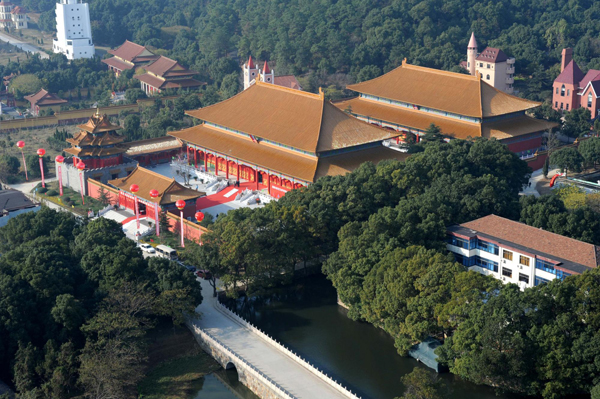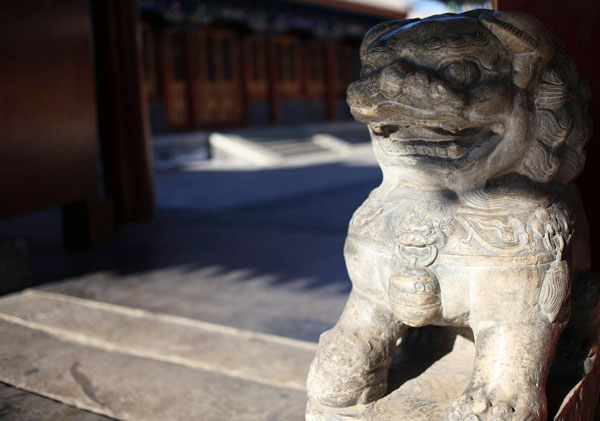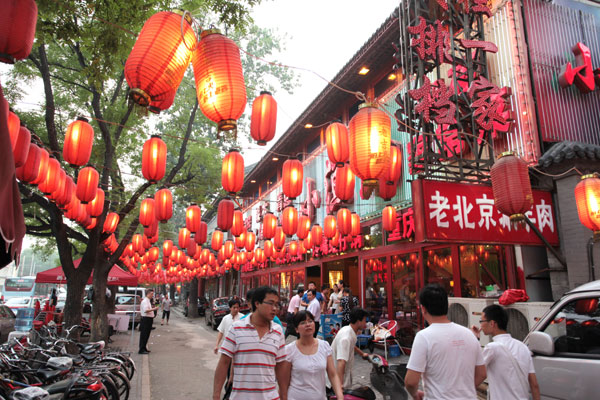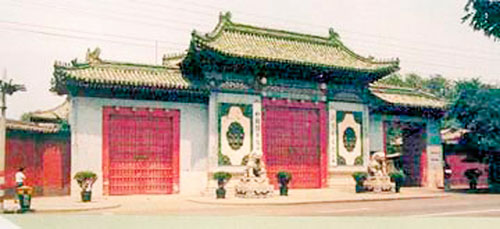Are you an atheist? Do you believe that ghosts really exist? As a
city with a rich past, Beijing has quite a few spooky places that are
thought to be haunted by the deceased. While some of the stories are
groundless and have no actual proof, the sheer bone-chilling factor
attached is enough to make the place attractive in a mysterious sense.
One thing that can be said for sure is that next time you walk past
Prince Gong’s Mansion and get shivers down your spine, you are not
alone.
1 Imperial Palace
With a history spanning over 600 years, these walls served as the Imperial Palace (must-see for
China vacation deals)in
the Ming and Qing dynasties, when execution for betrayal or
disobedience was common and anyone who was against imperial rule was
subject to death. Murder was often committed by a jealous concubine or
envious guard. Too many died unnecessarily, creating these bloody red
walls. The palace was transformed into a tourist site, with guards put
in place in the late 1940s, when the protectors witnessed strange
occurrences, including odd animals scurrying about the grounds late at
night and a crying woman in white walking the grounds but not responding
to people.
2 Gongwangfu (Prince Gong’s Mansion) 
The mansion on Liuyin Street of Xicheng district was owned by a
notoriously corrupt official of the Qing Dynasty, He Shen and his harem
of 80 concubines. His only grace lay in his devotion to his wife, Feng
Shi, who fell ill after their youngest son died in a battle against
rebels. Then her devoted husband hired monks to pray for her health to
return, only to find Feng dying of a broken heart. Rumor has it that the
house was haunted by the ghosts of the lady as well as many former
escorts of He Shen. Late at night, cries of the mother can be heard
echoing through the mansion. Even security guards at the tourist spot
say female ghosts in white can be seen wandering around the garden. If
you are brave enough, you can visit here for your
popular China tours
3 Guijie Guijie (Ghost Street)
Located
in Dongzhimen, Guijie is an essential part of life for Beijing
citizens. Despite that fact that life here is colorful and peaceful in
daytime and at night, far from being gloomy and scary, many ghost
stories can be heard from the old timers. According to them, the name
Guijie originated from Gui(鬼)jie(街), meaning a street haunted by ghosts;
there were many shops selling coffins here with few shoppers several
decades ago; business prospects seemed to be dimming since 1997, when
the real street of catering came into being, thus spreading its name as a
street haunted by ghosts. So if you are not interested, please do't go
there for your
best tours of China.
Address: Dongzhimen, Dongcheng district
4 Songpo Library
Seated
in Shihu Hutong No.7, Xicheng district, Songpo Library is special in
Chinese history since it was the home of Wu Sangui, the general who
abandoned Ming Emperor Chongzhen and defected due to his love for his
charming courtesan Chen Yuanyuan, a truth proving the saying, ”a beauty
can ruin the country.” However, the girl soon felt heartbroken and ended
her life by hanging herself when Wu Sangui got tired of her after he
took up a cushy post in the Qing court. And for the past 100 years, the
girl has been haunting the hutong (must-see in Beijing for
travel to China).
Address: Songpo Library 7 Shihu Hutong, Xicheng district.




No comments:
Post a Comment